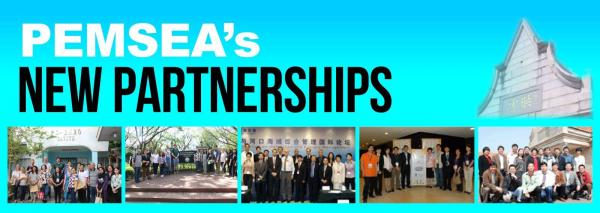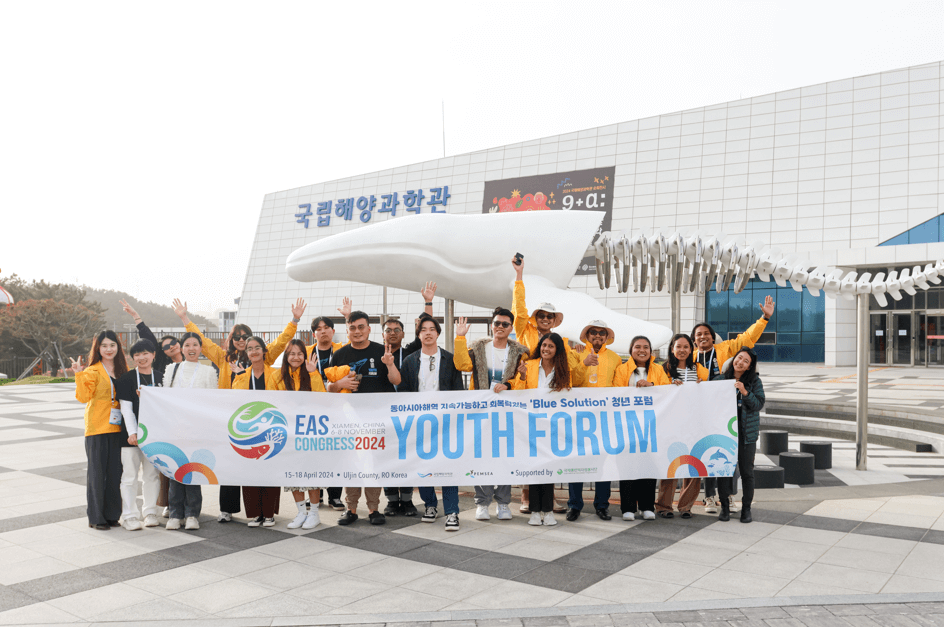PEMSEA forges new partnerships with NIVA, COMI
Thursday, 30 July 2020

Partnerships in Environmental Management for the Seas of East Asia (PEMSEA) capped off the first half of the year 2020 by welcoming two new partners to join its work in implementing the shared regional marine strategy called the ‘Sustainable Development Strategy for the Seas of East Asia (SDS-SEA).’
The Norwegian Institute for Water Research (NIVA) joins PEMSEA as its 23rd Non-Country Partner following the approval of NIVA’s application as PEMSEA non country partner during the PEMSEA Council Partnership Meeting this July.
NIVA is Norway’s leading institute for fundamental and applied research on marine and freshwater. The institute’s research comprises a wide array of environmental, climatic and resource-related fields. Its world-class expertise is multidisciplinary and covers a broad scientific scope—combining research, monitoring, evaluation, problem-solving and advisory services at the international, national and local levels.
NIVA is the lead partner agency implementing the ASEAN-Norway Cooperation Project on Local Capacity Building from Reducing Plastic Pollution in the ASEAN region (ASEANO). The project aims to strengthen the knowledge base and build local capacity to tackle plastic pollution from key industries and government sectors by providing science-based knowledge on sources and releases and; sharing experiences and best-practices on technology, regulation and management. NIVA aims to assist in strengthening local and regional capability by sharing its applied research and monitoring expertise in preventing and mitigating the environmental threat posed by marine litter and microplastic pollution. Participating countries In the ASEANO project include Indonesia and the Philippines as pilot countries, with PEMSEA serving as the subcontractor and implementing agency for the Philippine component. The experience and lessons from these two pilot sites will be shared to the rest of the ASEAN member states through the ASEAN Working Group on Coastal and Marine Environment.
New Regional Center of Excellence
In 2008, the EAS Partnership Council approved the concept and designation process for PEMSEA’s Regional Centers of Excellence (RCOE) Program, which provides the organization with a partner that has achieved internationally-recognized scientific excellence, and with competencies that add value to SDS-SEA implementation through capacity building, cutting-edge research and technical assistance.
The designation enables PEMSEA to systematically access the expertise and tools/techniques of the institution through a formal arrangement. It also facilitates the opportunity to develop collaborative or joint projects/initiatives, including training workshops and projects, which can be co-financed by the two organizations and/or with a donor. For its part, the RCOE provides the designated institution with additional recognition from all PEMSEA countries of their field of specialization and new opportunities for collaboration in research and management applications.
The Centre for Marine Environmental Research and Innovative Technology (MERIT), was designated as the first PEMSEA RCOE, focusing on Marine Pollution. The second RCOE is the Marine Science Institute of the University of the Philippines (UP-MSI), focusing on Coral Reef Research and Marine Protected Areas. In 2019, the Institute for Global Environmental Strategies (IGES) was chosen as the third RCOE, focusing on Climate Change Adaptation and Disaster Risk Reduction.
This year, the East Asian Seas Partnership Council approved the application of the Coastal and Ocean Management Institute (COMI) of Xiamen University as an RCOE in Sustainable Coastal Development. COMI integrates both natural and social science and promotes interdisciplinary research on sustainable coastal and ocean management and governance.
COMI was designated as an RCOE because of its expertise in sustainable coastal development and integrated coastal management; its publication of nearly 690 papers and 38 books on coastal and marine governance and management; application of research to real-life policy issues; capacity development; extension services in terms of organizing training workshops for coastal managers and policy makers from East Asia and beyond and; as part of Xiamen University, COMI has been officially acknowledged by the Government of China as the leading university in marine sciences.



